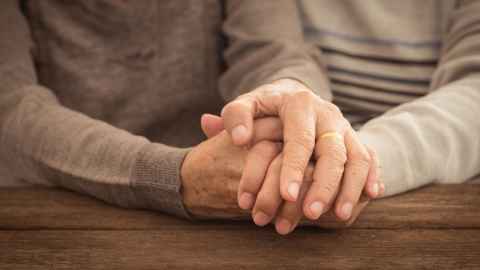Don’t forget older people’s mental health
31 January 2018
Opinion: Investigation into the mental health of older people would be one humane and wise outcome of this latest Mental Health Inquiry, writes Dr Hilary Lapsley.

The Government has just announced an inquiry into mental health and addictions. It will be chaired by former Health and Disability Commissioner Professor Ron Paterson and its members are a dream team: Dr Barbara Disley was respected chair of the former Mental Health Commission and Professor Mason Durie is a distinguished leader in Māori mental health. Other members of the six-person panel bring to the table commitments to mental health consumers, Māori and Pacific issues, forensic services and youth.
Growing concern about youth suicide, youth mental health, and the inability of services to meet vastly increased demand, prompted calls for the inquiry. Helping young people with tools to manage their issues is proven effective; therefore access to appropriate high quality services must improve for younger New Zealanders because we know it works.
However, the inquiry should not overlook older people’s mental health. Older people are usually amazingly resilient in dealing with the losses consequent on ageing, such as bereavements and physical health challenges. But the rapidly growing population of older people means that services struggle to provide the supports and treatments needed to help people age well. Loneliness, particularly prevalent in older age groups, can sap resilience, and untreated depression is all too frequent. The LiLACS NZ study I am involved with has shown that depression often accompanies the common health conditions of advanced age, leading to much poorer outcomes. And further, dementia-type illnesses are projected to triple by 2050.
In earlier times, older New Zealanders with serious mental health conditions were all lumped together under geriatric services. I still recall with sadness a physically active, mentally alert elderly woman I met while visiting a locked ward in a psychiatric institution. She was desperate to leave because the other women in the ward, who appeared to have advanced dementia, were mostly chair-bound, passive and uncommunicative. There was no sign of good therapeutic programmes for those women, either.
There has also been a prejudice that older people, seen as set in their ways, do not benefit from psychotherapeutic interventions. This is incorrect and older people with mental health problems should have equal access to the benefits of psychological treatments. All too often psychoactive medications are the first line of intervention for mental health conditions, yet in older people these can enhance the ‘cocktail’ effect of medications already being prescribed for a range of physical health issues.
Investigation into the mental health of older people and recommendations to support their access to integrated, high quality services, sensitive to their needs but not age-based, would be one humane and wise outcome of this latest Mental Health Inquiry.
Dr Hilary Lapsley was research director of the former Mental Health Commission, and is currently a senior research fellow in General Practices and the James Henare Research Centre at the University of Auckland. She is currently working with the LiLACS NZ group on reports for the Ministry of Health, as well as developing a focus on gender and ageing.
This article reflects the opinion of the author and not the views of the University of Auckland.
Used with permission from Newsroom, Don’t forget older people’s mental health published on Wednesday 31 January 2018.